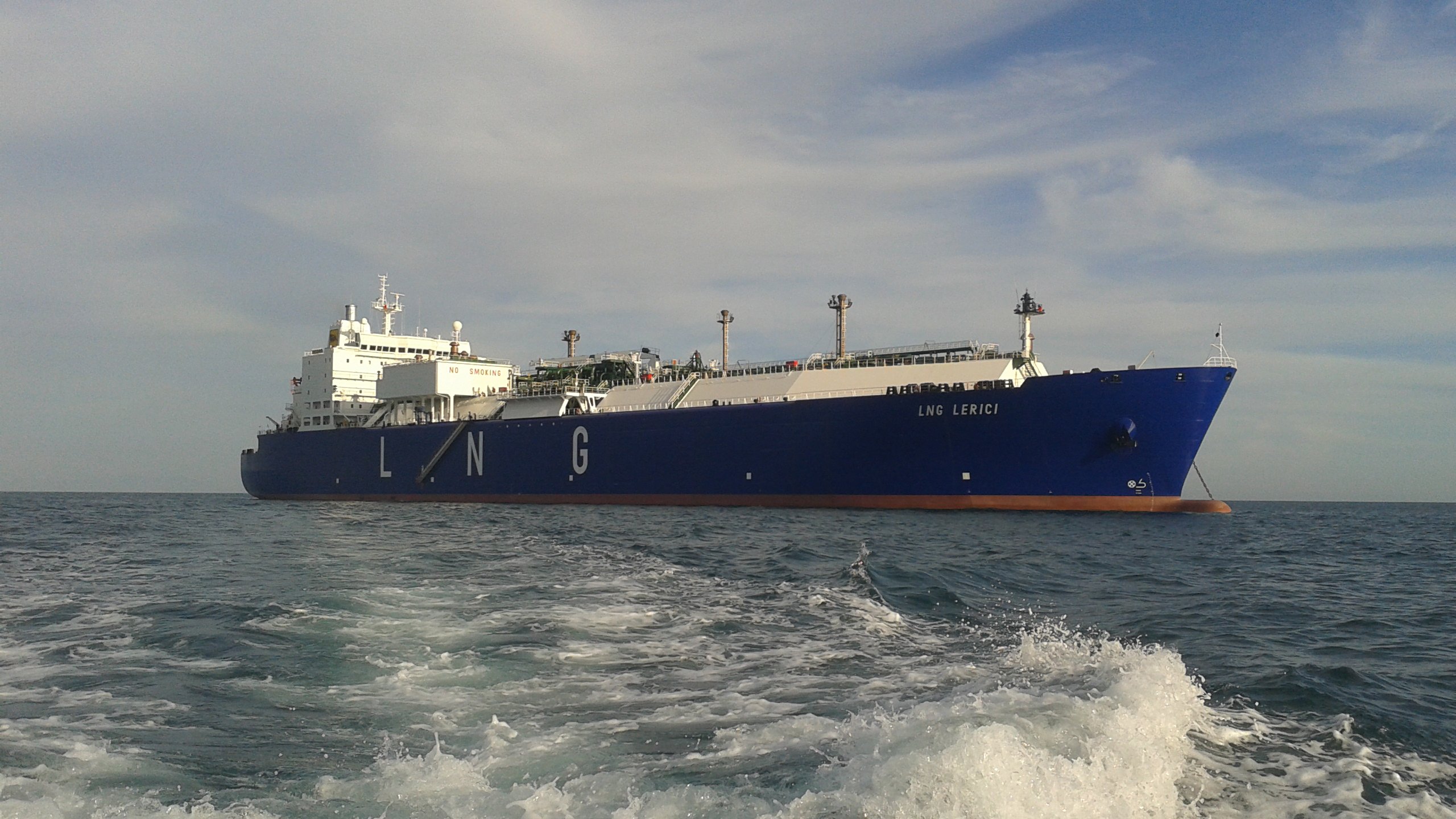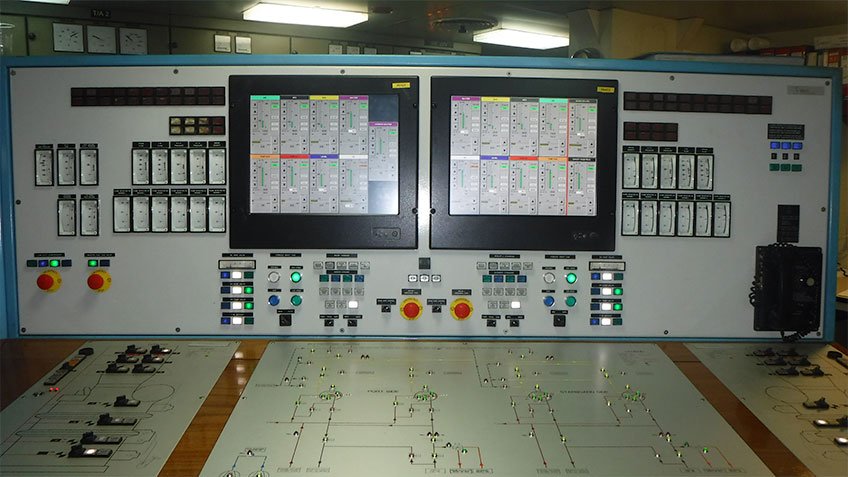The LNG Portovenere and LNG Lerici are two ships designed for the transportation of liquid natural gas. Built in 1997 by Fincantieri and having reached the middle of their lifespan, their owner, in collaboration with their management company, the Belgian firm EXMAR Ship Management, made the ships the object of a significant, total renovation project to prolong their lifespan by at least 15 years.
In addition to revamping the boilers, pumps and turbines, the project also included modernization of all the control systems, from the central management system to the system used for the turbines and turbopumps. The design and implementation of the new automation system was assigned to the Safety Systems and Information Division of the Italian company Leonardo. A high-tech global company and one of the main players in the aerospace, defense and security sectors, the company is a leader in the design and provisioning of high-integrity security systems and process safety systems.
Based on its in-depth knowledge of Rockwell Automation solutions and a long-term collaboration with its team, Leonardo opted for the deployment of a new infrastructure controlled by the PlantPAx® DCS.
Challenge
Dedicated to transporting liquid natural gas, the ships, with a capacity of 65,000 cubic meters each, underwent an extensive refit project, in which Leonardo was involved for automation control, sensors and field instrumentation.
At the time of their construction, both the LNG Portovenere and the LNG Lerici were equipped with a Bailey Infi 90 system, popular at the time, which became a legacy system at the end of its lifespan, maintained by the Leonardo service department. The desire to replace the legacy system with a modern, high-performing system was at the heart of the project assigned to Leonardo.
In addition to the central system, in itself already a challenge because it represents the heart of these ships, Leonardo was also contracted for the modernization project covering the turbopumps and turbines automation systems, which up to that point had been managed by separate systems. The replacement of all field instrumentation was also necessary, as it had become obsolete and at danger of imminent breakdown, especially in light of the difficult conditions in which these ships operate.
The greatest challenge, however, was related to the time frame given by the owner. For understandable economic reasons, the stoppage time for the ships had to be as brief as possible. This required perfect coordination with the other contractors, in order to proceed with installation of the hardware and software in parallel with the revamping of the boilers, turbines, pumps and other equipment – reducing the subsequent commissioning phase to a minimum.
It was also necessary to consider that all internal inspection activities would have to be scheduled during the time period. External certification by certifying bodies also had to be factored in as the ships have dual registry: specifically, RINA – Registro Italiano Navale (the Italian Naval Registry) and ABS – the American Bureau of Shipping.
“In this context, with so many variables and rigid timetables, selecting the best solution and suppliers was a key factor,” explains Stefano Baccelliere, Homeland Security & Critical Infrastructure LoB / Project Manager of Leonardo. “On the one hand, our time was very restricted, but on the other we wanted take advantage of the occasion offered by these large-scale works to offer our client a solution that was decisively better than the incumbent solution, to allow for possible future developments.
“We had to lean towards a solution that did not have hidden surprises of any kind and one that we knew very well that could satisfy the requirements for modernity, scalability and flexibility,” he continues. “We also wanted a system that had high performance levels associated with the management of functional safety, while also being simple to implement, in terms of hardware and software, ultimately delivering fluid migration of the legacy system to the new system. We could not take for granted the importance of finding a supplier that could bring proven experience from three diverse markets – naval, oil & gas processing, and energy – and above all, one with the capacity to make these vertical skills a common thread throughout the project."

